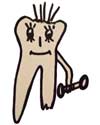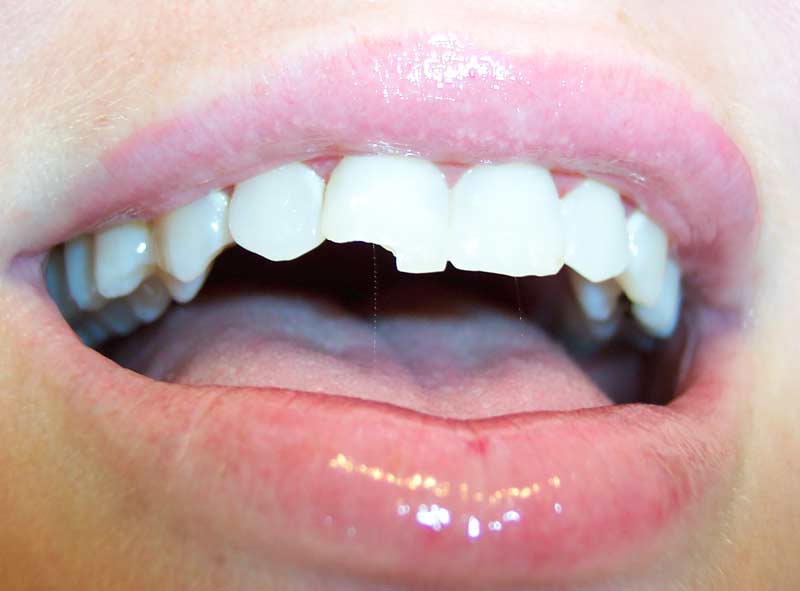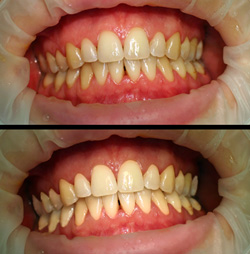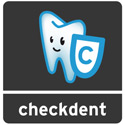Toothache 2/5
 One root canal after the other, but the toothache won’t go away?!
One root canal after the other, but the toothache won’t go away?!
–
Going to a dentist helps – doesn’t it?
„You have a bad tooth“ whatever that means – it’s something patients hear all the time.
–
A tooth can’t help being “bad”, after getting „poisoned“ by the monomers injected into it. Good root treatment is performed using a coffer dam, a magnifier and a lot of patience – here you can see how it’s done.
–
Sometimes things don’t run that smoothly, sometimes the root canal is not thoroughly cleaned to the tip, sometimes the instruments are not well-sterilized, and sometimes the tooth is not filled up.
–
Pain after root treatment?!
Badly performed root treatment means that problems persist, and this is where it gets complicated, because it’s hard to tell whether the pain is the result of a badly performed operation on a specific tooth, or whether it’s coming from the tooth right next to it, which also got some plastic filling. Are you allergic to this type of filling?
–
This is not an allergy!
An allergic reaction requires the presence of immune cells and therefore blood. But the tooth is a mineral, and although monomers can seep through it and damage the nerve, the dentine does not contain any blood. At most, you may have a contact allergy, which will make itself felt in the membrane, but this is a different kettle of fish.
–
One root canal after the other!
Because dentists don’t know what to do in cases like these, they just keep performing root canal treatment. But the toothaches continue, so they go on to perform root tip resections. Normally the ordeal should be over, but then even more problems may appear:
–
If the resection was not properly performed, and the canal not cleaned, either from above (orthograde) or from below (retrograde)!
- Are there still any teeth left which have plastic fillings?
- Has the inflammation/ have the monomers spread even further?
- Was faulty root treatment performed at some point, and is only now starting to cause problems?
- Was root tip resection performed correctly – using sterile instruments in a sterile environment?
Stay tuned for: Once upon a time there was the tooth III
VN:F [1.9.22_1171]
Rating: 0.0/5 (0 votes cast)
VN:F [1.9.22_1171]









